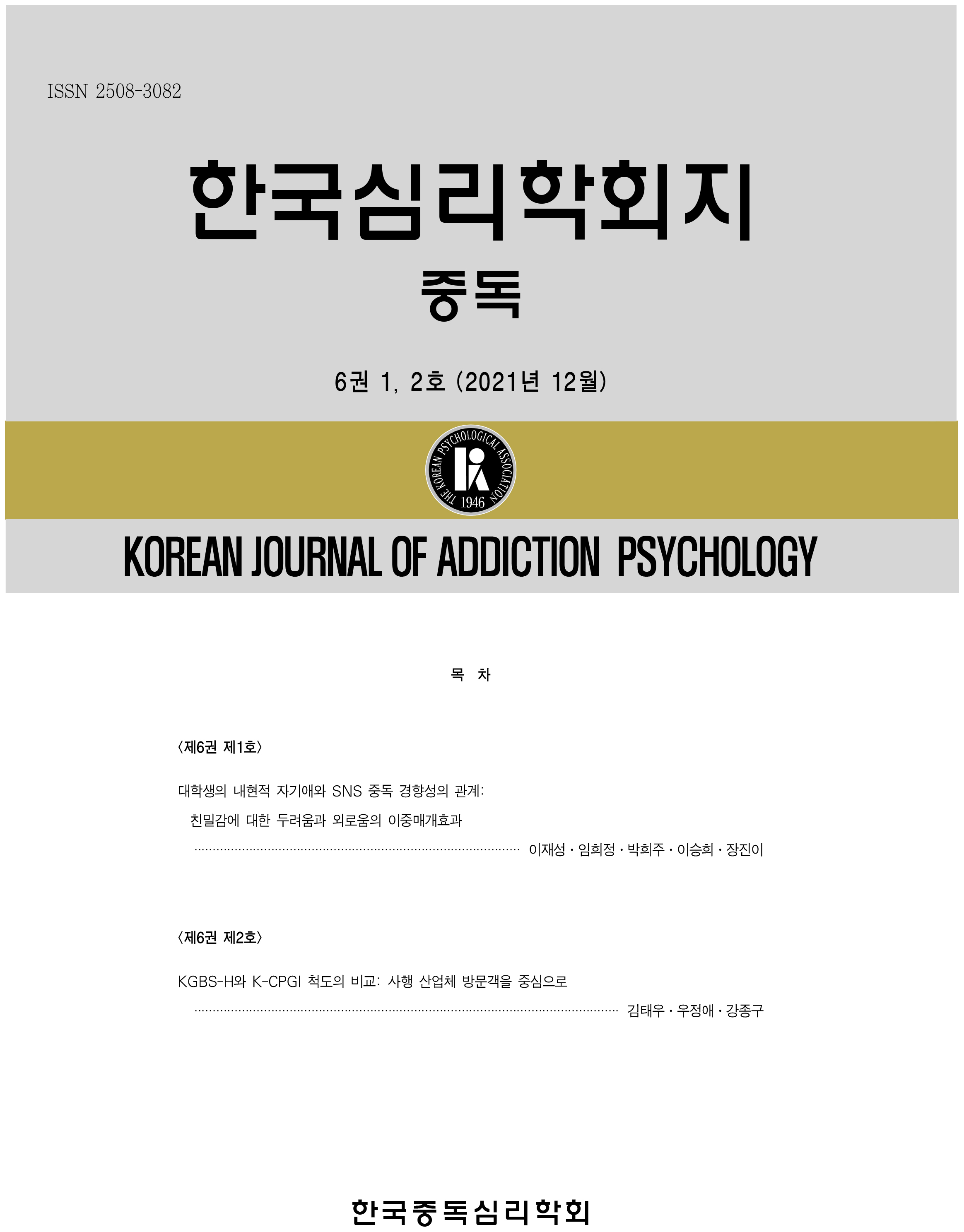- 권한신청
- P-ISSN2508-3082
중독자의 회복과정에서 한국적 수행법의 활용
The Korean Self-discipline Approach for the Recovery Process of Addiction

초록
본 연구는 중독자의 회복과정에 한국적 수행법을 활용하기 위한 것이다. 유교, 불교, 도교, 그리스도교적 수행법은 중독자의 회복에 도움을 준다. 중독은 삶의 태도문제이며 중독으로부터의 회복이란 건강하고 성숙한 삶의 태도를 가지는 것이다. 유교의 구체적 실천행동, 올바른 생각과 텅 빈 마음, 마음챙김, 자비명상, 무위, 팔정도의 실천, 기독교적 영성, 예술과 체육활동을 통한 즐거움 찾기, 숲과 같은 자연환경 활용하기, 기도와 봉사 등의 한국적 수행과정은 중독자의 삶의 태도를 변화시키고 회복을 잘 유지하게 한다. 특히 마음챙김은 중독으로 부터 회복하는 데 있어서 핵심적 요소가 된다. 한국적 수행의 특성은 중독자가 중독으로부터 벗어나 행복한 삶을 살도록 돕는데 있다. 자기의 몸과 태도, 행동, 마음 조절하기, 마음챙김 등의 한국적 수행은 대뇌의 전두엽기능을 활성화 한다. 끝으로 본 연구에서는 중독 상담자가 가져야 할 치료적 태도로 마음챙김이 필요함을 제시하였다.
- keywords
- 중독, 한국적 수행, 유교, 불교, 도교, 그리스도교 영성
Abstract
The purpose of the present study was to find out about the Korean Self-discipline approach for the recovery of addicts. Confucianism, Buddhism, Taoism, and Christian Self-discipline will help with the recovery of addicts. Addiction is a problem attitude of life, the recovery from addiction requires a healthy and mature attitude of life, such as self-discipline, specific practical action, the correct thinking and freedom from negative thoughts, Wuwei, mindfulness, compassion meditation, the practice of Noble Eightfold Path, Christian spirituality, found that joy through art and sports activities, action of natural environment such as the forest, praying and serving Korean self-discipline changed the attitude of the life and maintain a good recovery. In particular, mindfulness is a key element to recovery from addiction. The characteristics of the Korean Self-discipline approach are getting away from addiction and, on to a happy life. The Korean self-discipline approach entails self-regulation attitude, behavior and mindfulness promotes the brain's frontal lobe function. Finally, suggestions were given for the counselor's attitude, such as mindfulness to addiction counselors.
- keywords
- Addiction, Korean Self-discipline approach, Confucianism, Buddhism, Taoism, Christian spirituality
- 투고일Submission Date
- 2016-04-30
- 수정일Revised Date
- 2016-06-15
- 게재확정일Accepted Date
- 2016-06-19
- 다운로드 수
- 조회수
- 0KCI 피인용수
- 0WOS 피인용수


